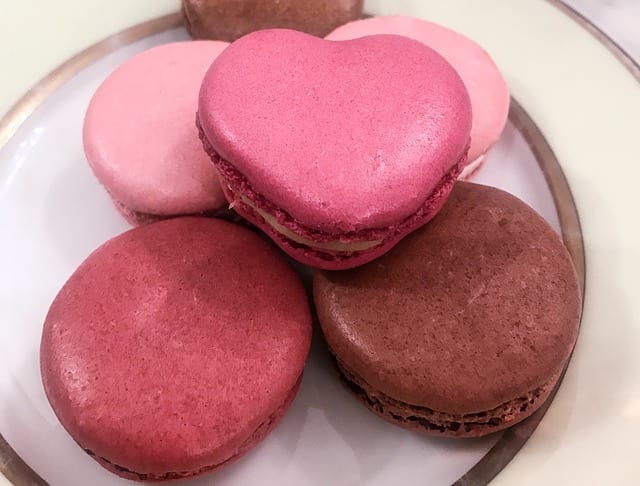
I was at that point in February where the uptick in fibromyalgia combines with the seasonal anxiety and despair until I don’t even feel human anymore.
I was taught that you’re supposed to start an essay or an article by thinking of something you’re burning to tell somebody else– one fact you’d like to make the whole world understand. So this is what I want you to understand today: people who suffer from depression, anxiety or a weird synthesis of both, either by themselves or as one of the symptoms of a chronic physical illness like fibromyalgia– people like us sometimes get to a point where we feel as if we’re not human. We’re something else: aliens inhabiting a borrowed body, hovering around a world that isn’t our own. It’s not nearly the most painful symptom of anxiety. In some ways it’s almost fun. It helps you see the world with new eyes. But it is strange.
Critics of Patheos Catholic complain that we talk about our physical and mental conditions too often.
As if weakness weren’t something a Christian should rejoice in.
At any rate, there I was: afflicted with that strange, hollow, February feeling of being a ghost in a machine on a world that wasn’t my own. And it was Valentine’s Day.
We managed, through some near-miraculous last-minute tips in the blog tip jar, to avert the utility shutoff that had terrified me the week before. We had food in the cupboard, the past-due paid on the utility bills, more EBT coming in on the 22nd and about thirty dollars to spare. We would be desperate again in two weeks, as always, but there’s really no planning for that. Rosie had nearly twenty dollars of allowance money she’d squirreled away that we weren’t going to have to confiscate to pay for groceries for the weekend. And it was Valentine’s Day– a bleak Valentine’s Day, since we don’t have a parish with an annual Valentine’s Day party for all the homeschooled children anymore. We had nothing to do for fun.
This was how we ended up on an hour-long bus trip to Robinson, Pennsylvania, when I was severely anxious.
The Steubenville transit authority now has a three-times-daily bus that runs all the way out to the mall in Robinson. There’s a mall in Steubenville, but it was tiny to begin with and now two-thirds of the shops are shuttered– and besides, it has a funny smell and a weird speed bump in the floor that makes me think it’s all falling into a sink hole. Robinson, on the other hand, has a real mall with a food court and a Build-a-Bear. It’s well worth riding the bus an hour out of your way, across the chimney of West Virginia, almost out of Appalachia, almost into the city of Pittsburgh itself.
It’s hard to believe that a city that modern is an hours’ drive from Steubenville.
The drive over is not much fun.
There is probably a part of the country more boring and unattractive than the road from Steubenville to Robinson in February, but I’ve never seen one.
First you go through downtown Weirton, where we almost ended up living once: a mass of rust, shuttered factories, railroad tracks and Eastern churches with their three-bar crosses. You could pretend you were a spy in a small town behind the Iron Curtain– or you could, if the billboards weren’t all in English and advertising Hardee’s. The billboards are the only things with bright color.
After that leg of the journey, there’s no scope for the imagination at all. You’re neither behind the Iron Curtain nor on the planet Earth. You might be in C. S. Lewis’s Charn, if it were a rural and not an urban region of Charn. The whole world looks dead, all brown grass and leafless, sticklike trees. The hay was baled in the fields but I didn’t see any cattle. I didn’t see anything alive.
We rode through rural Charn for forty minutes, and then the life came back. Traffic picked up. Strip malls gave way to a giant paved paradise, and then we were at a real urban mall.
I felt February fall off my shoulders.
We went to Build-A-bear, where there was a sale and I had a coupon; she paid for two-thirds of a pair of new stuffed animals, and I swiped my card for the last third. The friendly clerks packed the bears into house-shaped boxes with windows, as if they were living things.
Rosie and I carried her synthetic pets through the mall. We walked around for nearly two hours, circling the atrium, going up and down the escalator, people watching. The people in Pittsburgh aren’t like the people in Appalachia, for a reason I can’t put my finger on. It’s something about their clothes, or the pace at which they move, or the way they don’t look worried all the time. We played checkers and Connect Four on a set of giant plastic game boards put out for children to play with. Then we went down a glass elevator that looked like a space shuttle.
At the bottom, there was a Starbucks, and a bakery cart with a kiosk that said “Gluten-Free.”
I zoomed in on the gluten-free sign. They were selling macarons– real macarons from a bakery, flourless, free of any ingredient that makes my stomach swell and torment me. A rainbow of shiny meringue dots. There were three kinds of vanilla, mango, strawberry, mint, blue bubblegum, raspberry, coffee, milk chocolate and several others.
I pointed to a chocolate one, because I’d never had a chocolate macaron. Rose chose bubblegum because the sides were studded with sprinkles.
The clerk handed me one rich amber orb, wrapped in wax paper.
Macarons baked at a French bakery are entirely different from the divots extruded by factories and sold by the box. This was big around as a silver dollar, nearly half as tall as it was wide, fluffy with fresh light filling. It actually had a scent to it, which macarons from the store do not. It smelled like hot chocolate.
I made myself wait to eat the cookie until I’d gotten my cold brew coffee at Starbuck’s. I had them sitting at a table, in a mall, like a normal person.
I am not a normal person. Hardly anybody is.
Still, there is something very therapeutic about being helped to feel normal for a few hours. It was back to Charn and the weird numb feeling as soon as we were on the bus, but just then I felt human.
And now February is almost over, and there’s hope.
(image via Pixabay)













